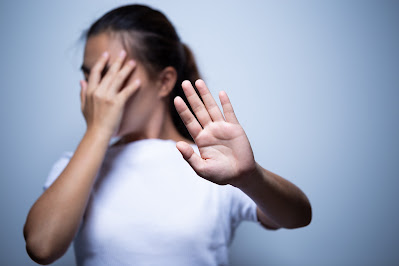The Caucus Blog – Human Trafficking is Happening in Illinois

Human trafficking is a form of modern-day slavery that occurs in every state, including Illinois. Statistics show that Illinois ranks in the top 10 nationwide in human trafficking cases. In 2021, the National Human Trafficking Hotline identified 243 cases in Illinois, with 355 victims reported. Human trafficking involves the use of force, fraud or coercion to obtain some type of labor or commercial sex act. These acts involve victims of all ages, races and genders, and the victims can be lured into these situations by violence, manipulation, false promises of well-paying jobs or romantic relationships.
Traffickers look for people who may be considered easy targets due to economic hardship, psychological or emotional vulnerability, natural disasters, political instability or lack of a social safety net. The most common types of trafficking reported were for sexual exploitation, including for illegal spa businesses, online ads, pornography and commercial sex. Other cases involved labor trafficking and panhandling. Victims were overwhelmingly female, with 195 reported as opposed to 28 males in the statistics from 2021. There were 251 cases human trafficking cases identified in 2020, with a total of 392 victims.
Many victims of human trafficking are trauma bonded with their abusers, making it hard for them to separate themselves. Traffickers prey on people who are most vulnerable or express some sort of need. Poverty is a main reason as well why individuals may be more susceptible to trafficking, with false promises of employment or financial stability being made. A common misconception about human trafficking is that it only involves people from other countries, but that is not true. Victims come from all ages and all nationalities, and not all situations involve strangers. One in four victims is a child, and in some cases they can be trafficked by family members.
Illinois’ location makes it an unfortunate nexus for human trafficking, with several major airports and highways that connect it to other parts of the country. Illinois is considered a central transportation hub for traffickers to transport victims in and out of the state.
Recognizing the signs of human trafficking is the first step in identifying potential victims and helping to save lives. Do not at any time attempt to confront a suspected trafficker directly or alert a victim to your suspicions. Your safety as well as the victim’s safety is paramount. Individuals are advised to contact local law enforcement, ICE or the National Human Trafficking Hotline. There are numerous common indicators of human trafficking, which can be found here.
House Bill 2418 was introduced by Rep. Jeff Keicher (R-Sycamore) and co-sponsored by Leader Tony McCombie (R-Savanna). It was unanimously passed by the General Assembly this past spring. This legislation creates a pathway to expunge criminal records for victims of human trafficking as they seek to recover from the trauma they have experienced and pursue a normal life. Victims are often forced to participate in unlawful activity by their traffickers.
“This bill streamlines the process and allows the victim making the petition to attend hearings remotely to avoid undue hardship or create a risk of harm,” stated Rep. Amy Grant (R-Wheaton). “In addition, the bill allows the petition to be filed under seal if a public filing may expose the victim to future harm.”
“Every year, millions of men, women and children are trafficked worldwide, including right here in Illinois,” stated Rep. Jackie Haas (R-Kankakee). “It can happen in any community and victims can be any age, race, gender or nationality. Recognizing key indicators of human trafficking is the first step in identifying victims and can help save a life.”
